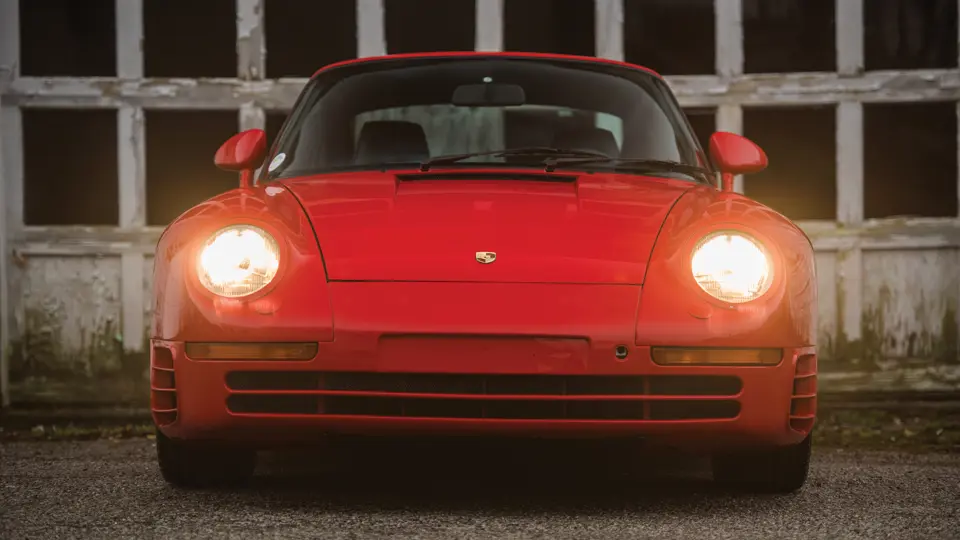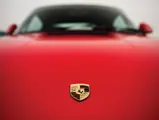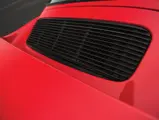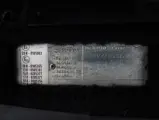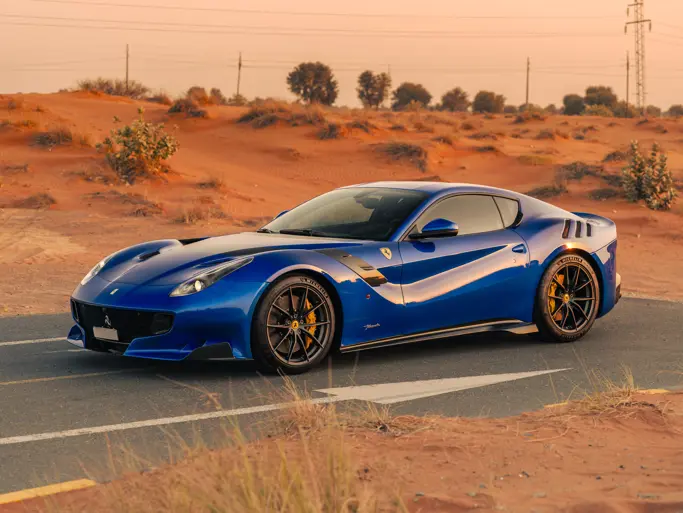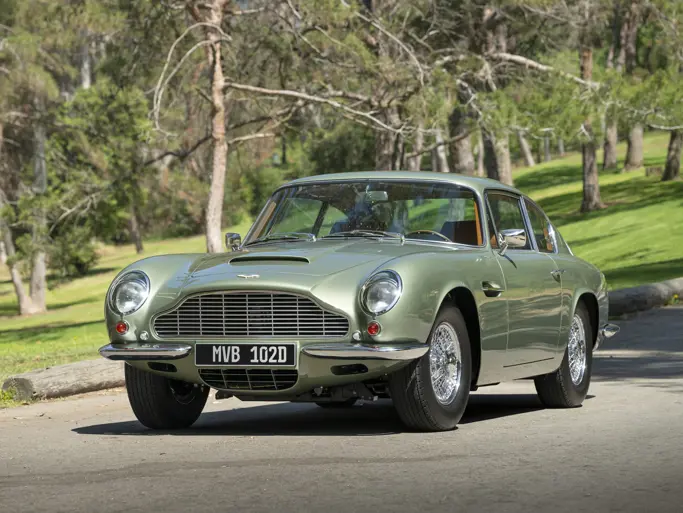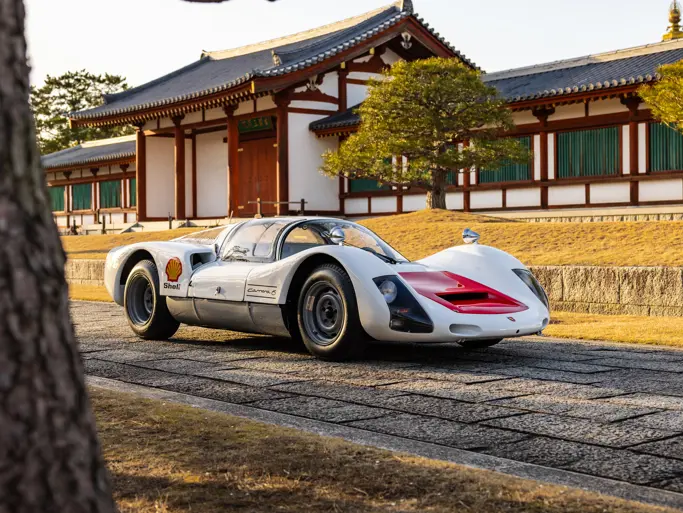
1987 Porsche 959 'Komfort'
{{lr.item.text}}
$1,600,000 USD | Sold
The Tenenbaum Collection
{{bidding.lot.reserveStatusFormatted}}
- Offered from the Tenenbaum Collection
- One of the most iconic and technically advanced cars of its era; one of only 292 standard production examples produced
- Developed for the fearsome Group B homologation class in the 1980s; features a powerful 2.85-liter turbo flat-six and sophisticated all-wheel drive
- Guards Red exterior over black leather
- Retains numbers-matching engine
- Driven approximately 14,000 km (~8,700 mi) at time of cataloguing
- Accompanied by a Porsche Certificate of Authenticity, tool kit, and manuals, as well as 2012–2016 restoration and service documentation
Porsche stunned the automotive world when it unveiled its new “Gruppe B” at the 1983 Frankfurt Auto Show. Identified internally as the Type 961, this twin-turbocharged, all-wheel-drive design, with its innovative composite-over-steel body and chassis platform, powerful rear-mounted turbocharged engine, and multitude of electronic engine and suspension management systems was quickly judged to be one of the most advanced ultra-high-performance automobiles ever created—yet it was still unmistakably a member of the 911 family.
This new machine was to be the German automaker’s entry into the cutting-edge FIA Group B international rally championship arena, where the only rule was that there were no rules—practically any technology was permissible. This no-limits policy encouraged a long list of automakers to create incredibly powerful and extremely fast vehicles, all of which required production of at least 200 street-legal examples on which these rally specials could be based. However, a rash of serious accidents forced a re-examination of the series. The FIA abruptly cancelled Group B, leaving manufacturers like Porsche on the hook.
With production of the homologated road cars already underway, Porsche found itself in a dire financial situation. To recover its huge investment in tooling and research, the company’s board of directors had no choice but to press ahead in hopes it could convince a limited number of wealthy customers that a 200-mph road car was a sound investment. Company management need not have worried; eager buyers lined up to place deposits on the Type 959. In total, a mere 292 production 959s were built (plus a number of prototype and pre-production cars and a later series of eight cars completed from spare parts), making them eagerly sought today.
The 959’s chassis, on the same 89.4-inch wheelbase as the 911 Carrera, was based on the 911’s stamped steel floorpan. In fact, the cabin’s center section, including its interior, was nearly identical to the 911. The front trunk lid and doors were aluminum; the extended nose section with its almost flush headlamps was molded of polyurethane, and the remainder of the shell from fiberglass-reinforced Kevlar. Aerodynamic stability was a primary consideration in the 959’s design, and after extensive wind tunnel studies, Porsche’s designers achieved a package with near-zero body lift and an amazingly low drag coefficient of 0.31, still an impressive figure today. There was extensive ducting and venting in the nose to cool the front brakes and oil radiator. The body’s rear section was greatly extended and widened, and it too was generously ventilated and topped with a full-width rear wing.
The true brilliance of the 959 lay beneath its svelte body shell. Its tremendously powerful engine, rear-mounted, was Porsche’s race-proven flat-six, with air-cooled cylinders and four-valve, water-cooled cylinder heads. This engine, displacing 2.85 liters, was similar to those used in the brilliant “Moby Dick” IMSA GT coupe and Porsche’s Indy open-wheel project. Featuring a pair of asymmetrical turbochargers, each of them intercooled, this engine delivered power in an almost seamless fashion, with a small turbocharger spinning up almost from idle to establish low-end boost, while the second exhaust-driven turbine came into play at 4,500 rpm. At full throttle and maximum boost, this relatively small engine produced a very impressive 450 horsepower at 6,500 rpm. Power was fed through a specially designed Borg-Warner six-speed transmission, which included an extremely low "gelände" gear for use in the off-road situations the Type 961 rally car might encounter.
Porsche’s Porsche-Steur-Kupplung (PSK) system allowed the driver to vary the 370 pound-feet of torque between the rear and front axles, allowing up to 80 percent to the rear under hard acceleration, all managed electronically. The 959’s highly advanced suspension was also race-derived, with double-wishbones at each corner, coil springs, and double shocks that could be adjusted by the turn of a knob from the driver’s seat. Both the ride height and shock damping were electronically adjustable, and a full array of instruments kept the driver in touch with everything going on behind and beneath. Special 17-inch lightweight magnesium alloy wheels and model-specific run-flat tires were created for the 959, and the wheels included one of the first automatic pressure-monitoring systems. Large power-assisted, ventilated disc brakes with ABS handled stopping chores.
Most 959s were delivered as “Komfort” models, with a broad array of cockpit amenities, including full leather trim and air conditioning. With its ability to put power to the pavement so effectively, the 959 was an amazing performer. It could see 60 miles an hour in less than four seconds from a standstill, cover the standing quarter mile in about 12 seconds, and touch 200 mph on a clear road. Without question, the Porsche 959 set the standard for high-performance road cars that was unchallenged until Ferrari unveiled its slightly faster, but much less sophisticated, F40 a few years later.
This attractive Guard’s Red 959 “Komfort”, notably fitted with heated sport seats for the driver and passenger, is now offered from the Tenenbaum Collection. Though its early history remains unknown at the present, it retains its numbers-matching engine and has enjoyed nearly a decade of outstanding stewardship while residing in the collections of dedicated American enthusiasts.
The accompanying history file demonstrates the outstanding degree of care lavished upon this fortunate 959. Following the consignor’s purchase in 2012, Proto Tech Inc. of Oakland Park, Florida, performed a full engine-out service, with invoices totaling over $77,000. All aspects of the car were addressed, including the brakes, fuel system, differentials, and steering rack. Following Proto Tech’s servicing, the car has since been maintained by Callas Rennsport of Torrance, California, beginning in 2013. Invoices document significant servicing annually during their caretaking. In 2013, invoices totaled over $29,000 for various servicing and clutch work. In 2014, new engine mounts were installed and the complete clutch assembly was replaced to a total of nearly $11,000. In 2015, the rear shock system was reassembled and a major service on the engine was performed, totaling over $30,000; over $24,000 in additional work was carried out in 2016.
More recently, in December 2021, the 959 benefitted from over $20,600 in work carried out by Callas Rennsport of Torrance, California. This job focused primarily on the car's technologically sophisticated adjustable suspension system, including replacement of hydraulic bypass and control valves. In total, invoices on file indicate nearly $197,000 in work performed.
Acquired by the Tenenbaum Collection in 2017, this 959 “Komfort” has seen only limited use, and now displays approximately 14,000 kilometers (~8,700 miles) at the time of cataloguing. A legendary model, it embodies the pinnacle of the era’s technological advancement and the peak of Group-B development. This 959, accompanied by 2012–2016 service documentation, tool kit, and books, represents a tempting opportunity to acquire a special car that shocked the enthusiast world when it was first unveiled—and has only grown more desirable in the decades that followed.
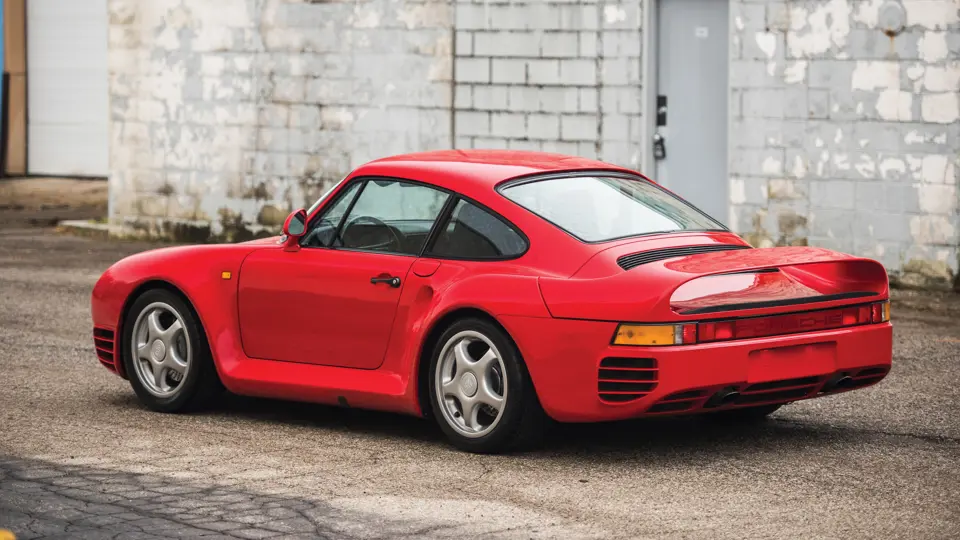

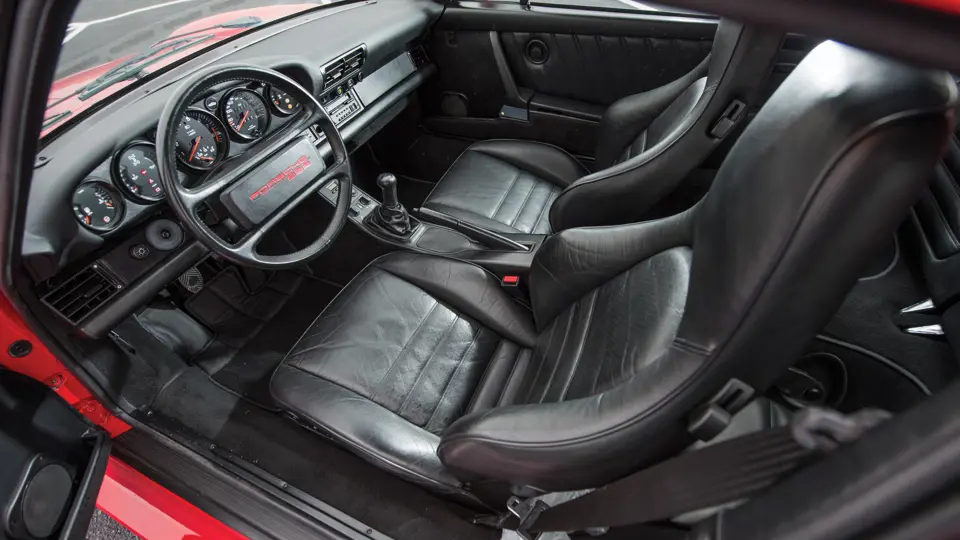



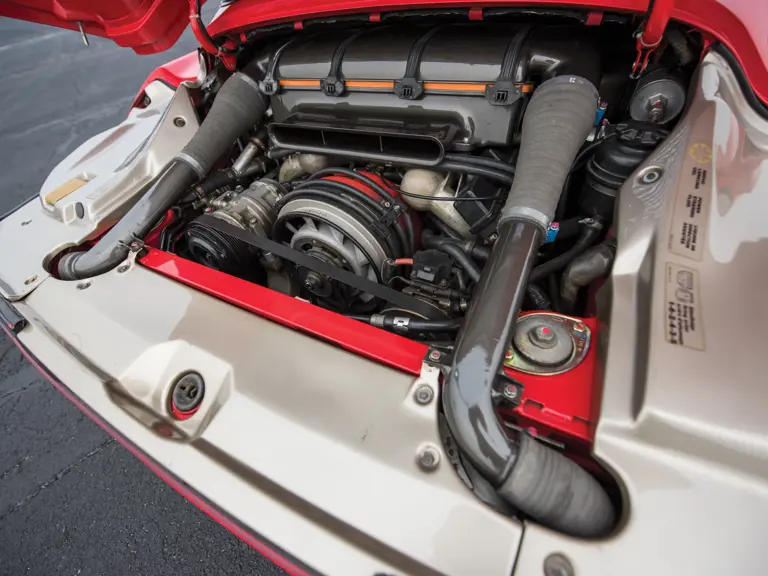
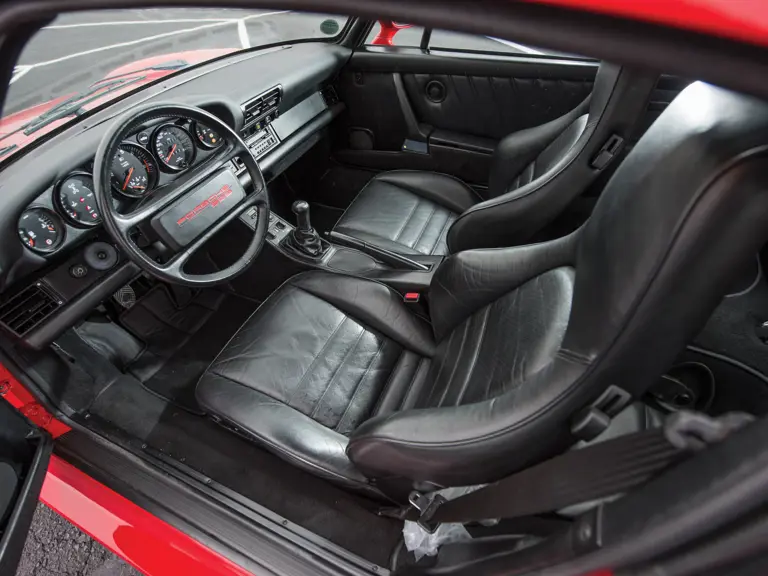
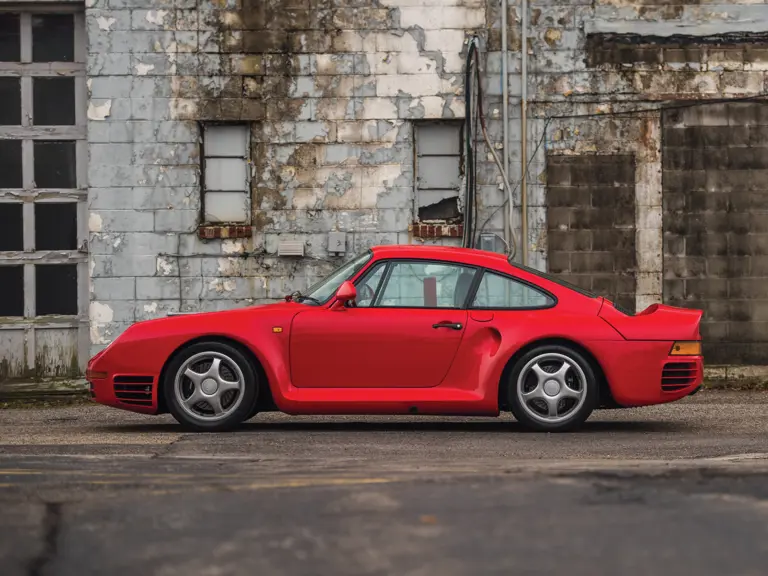
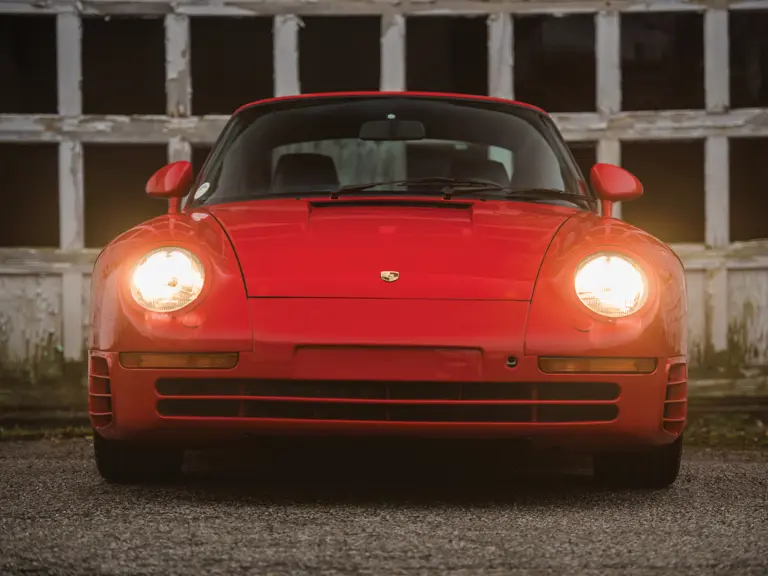

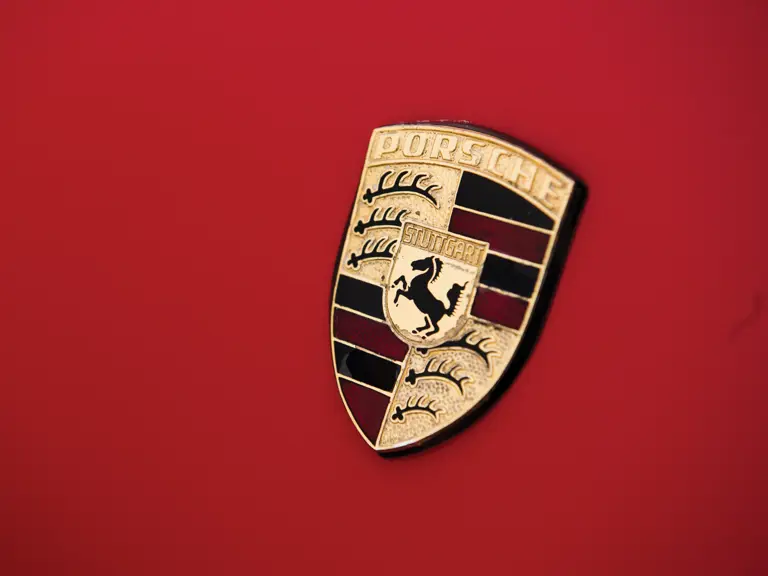
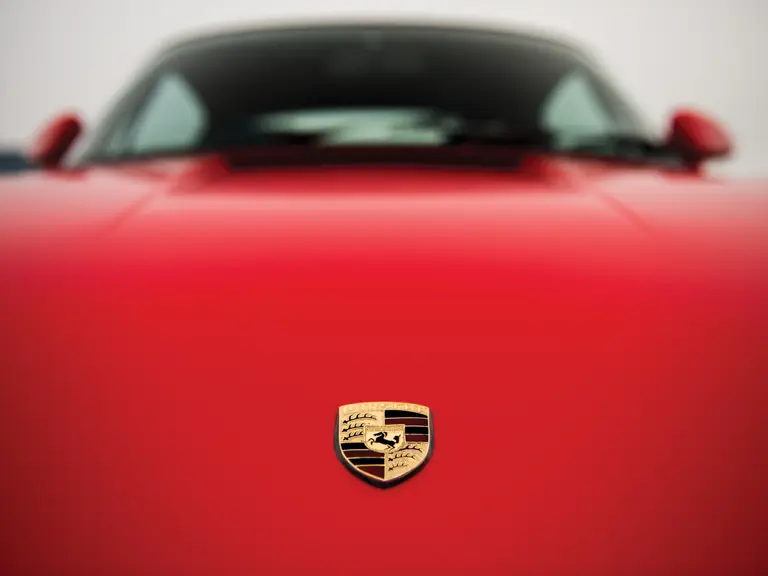
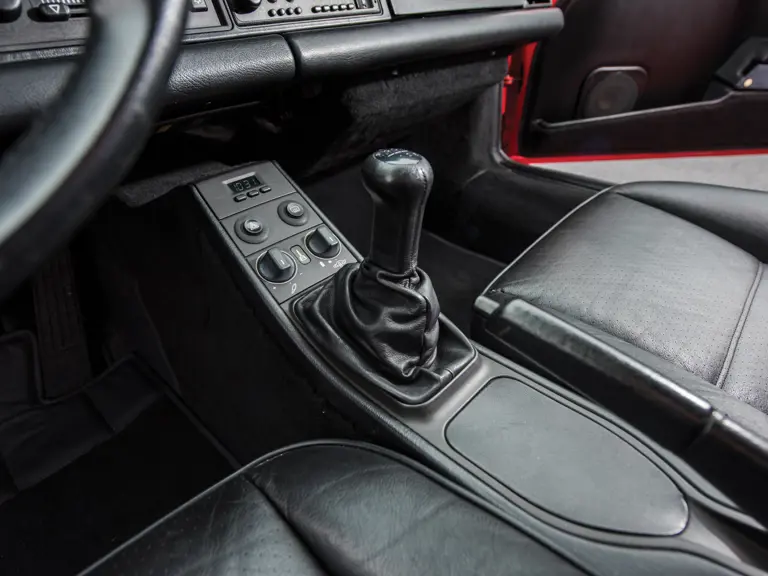
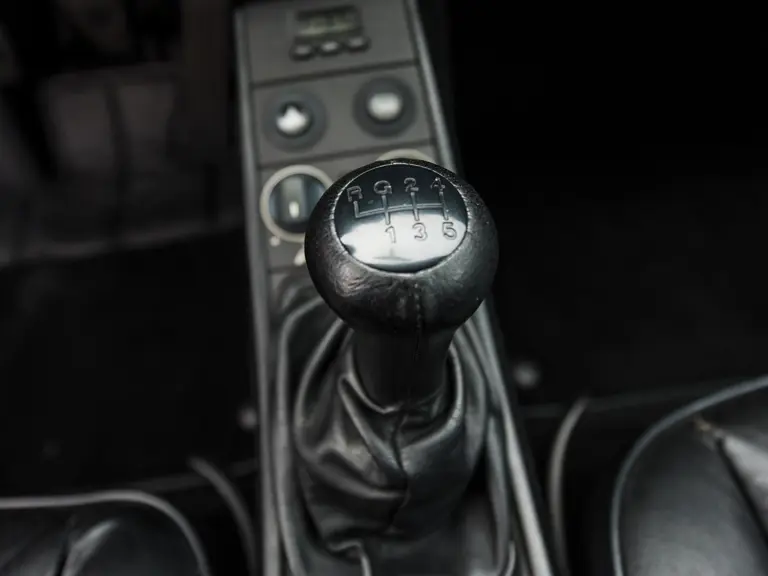
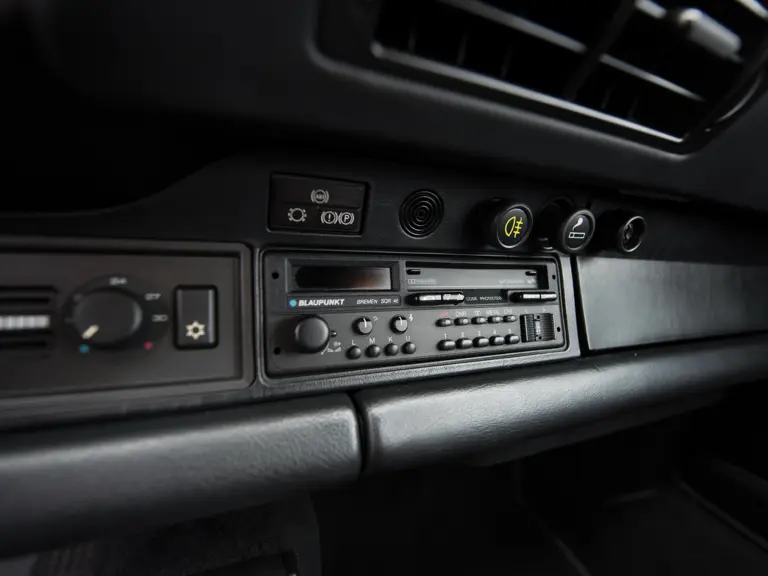
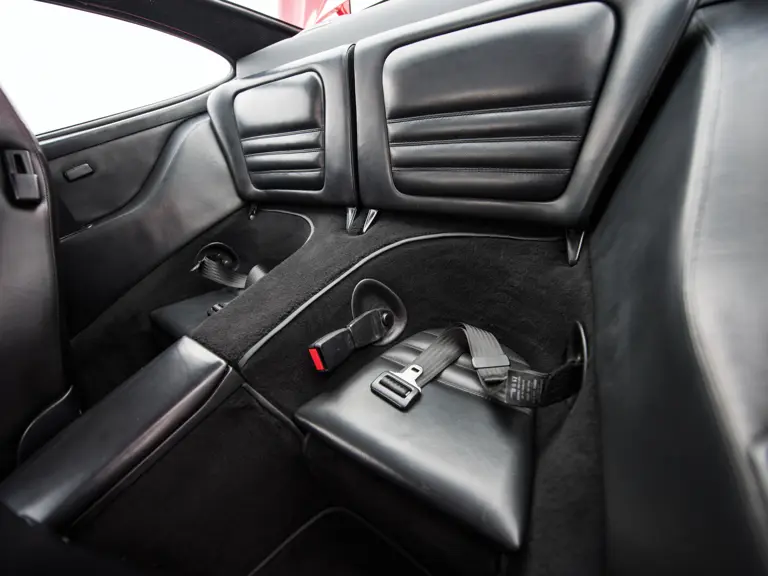
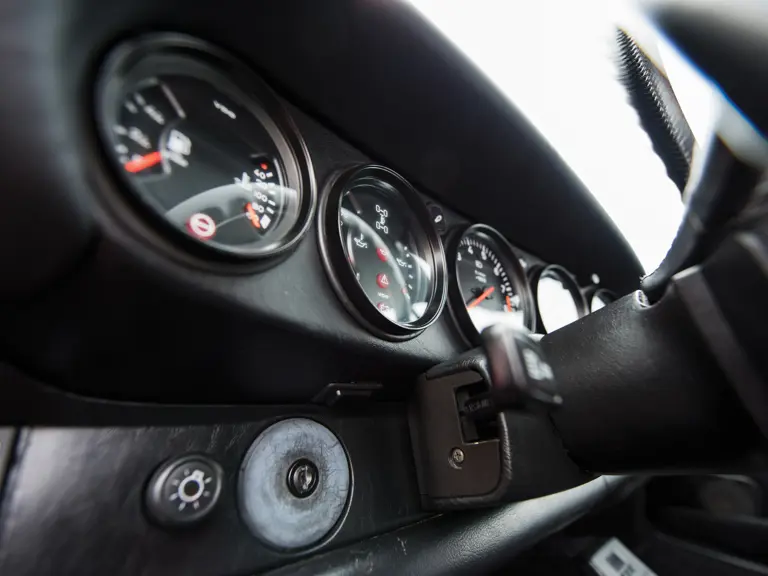
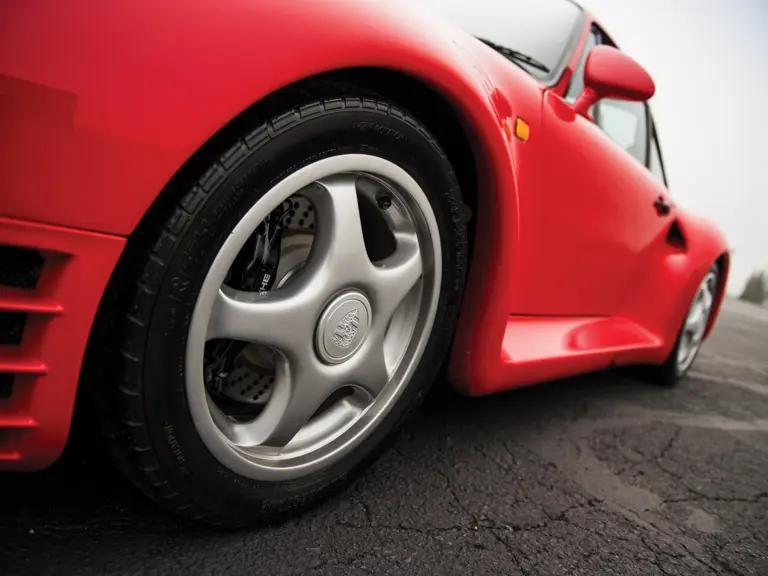
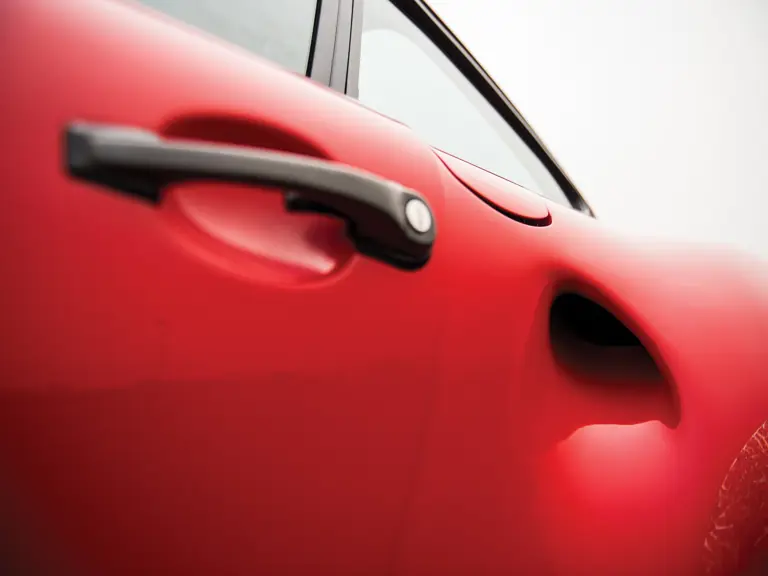
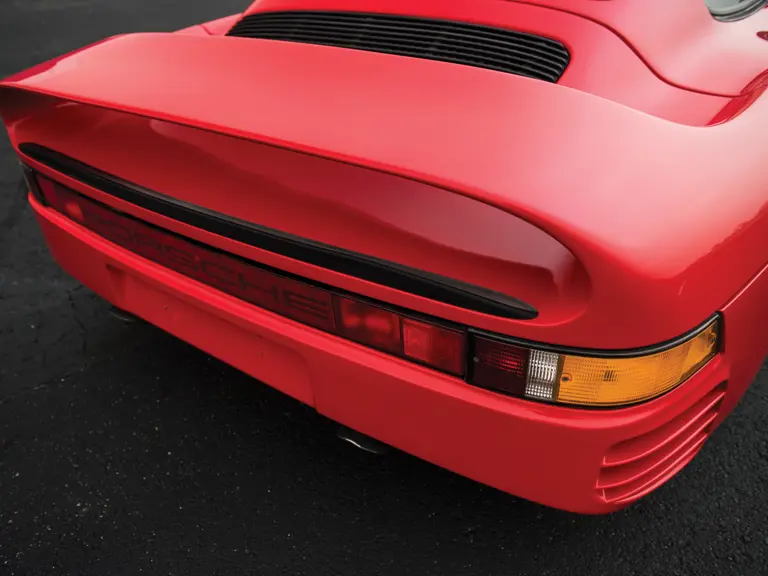
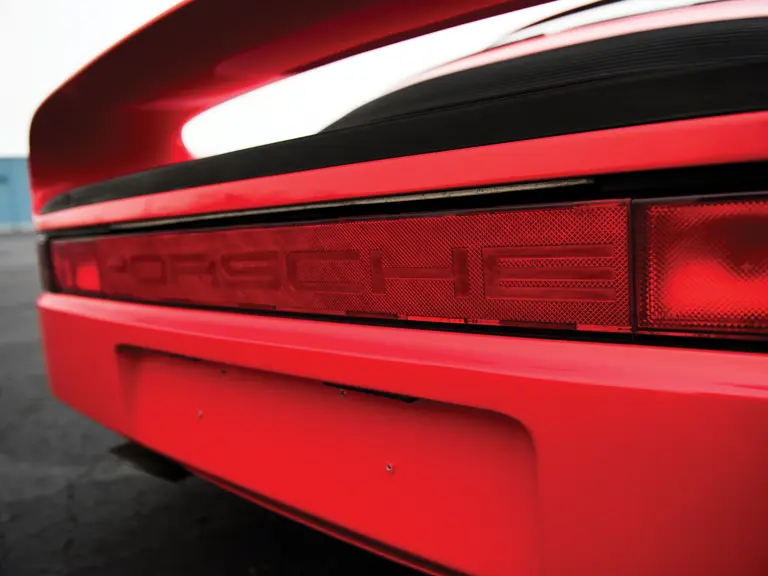
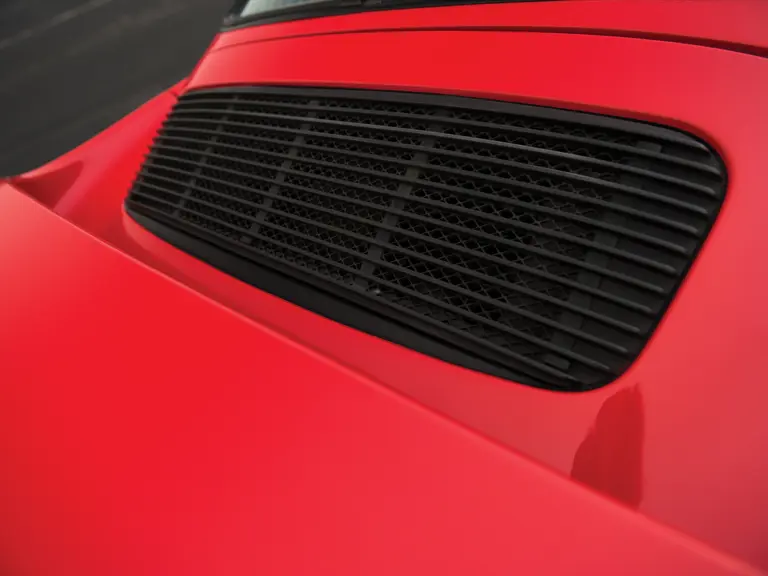
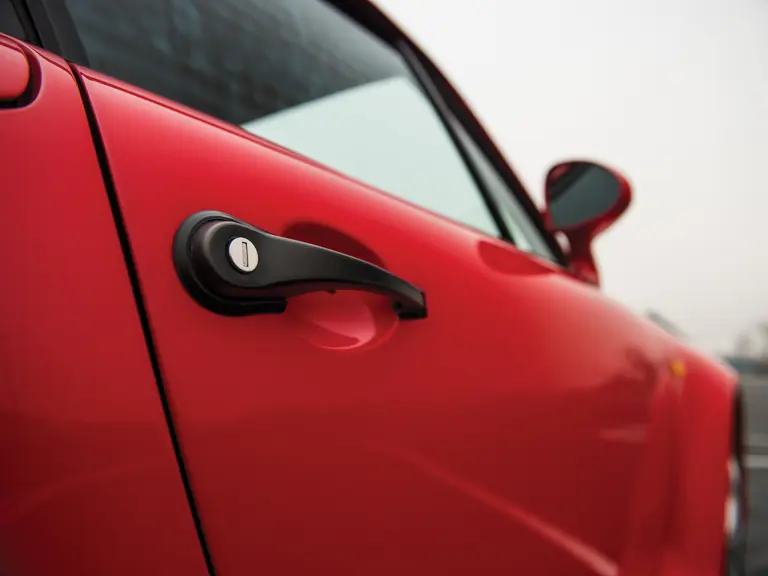
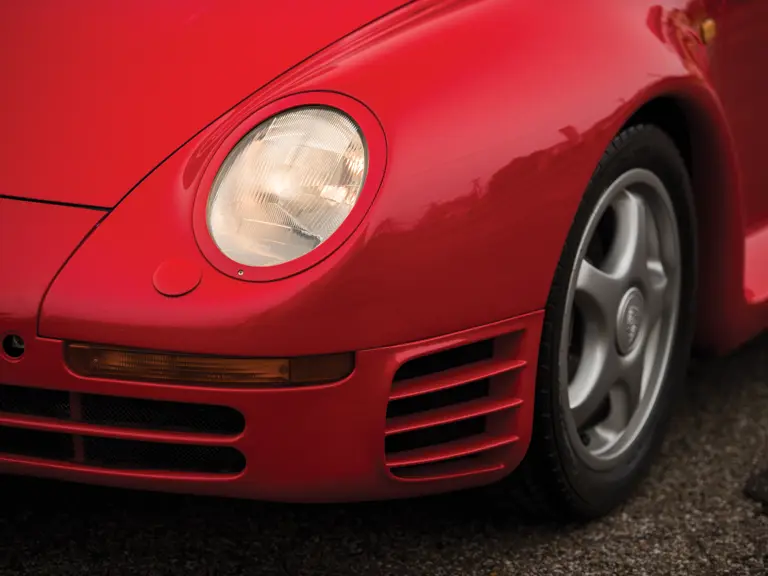

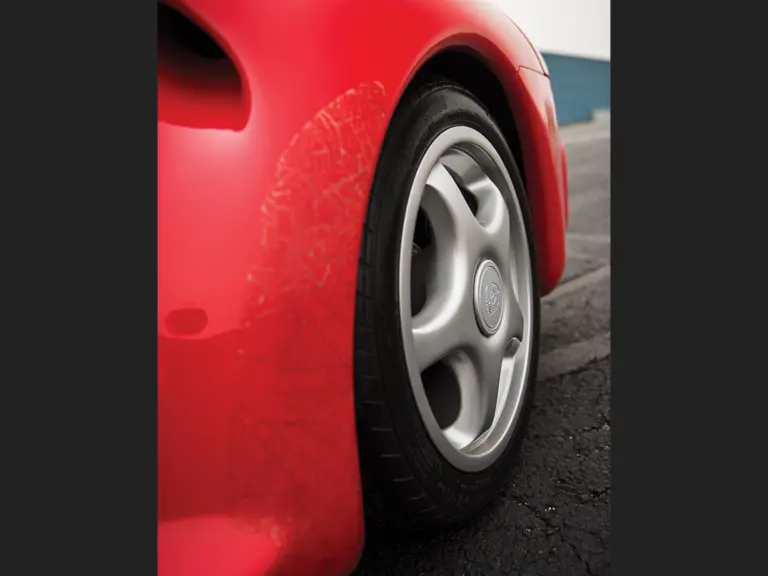
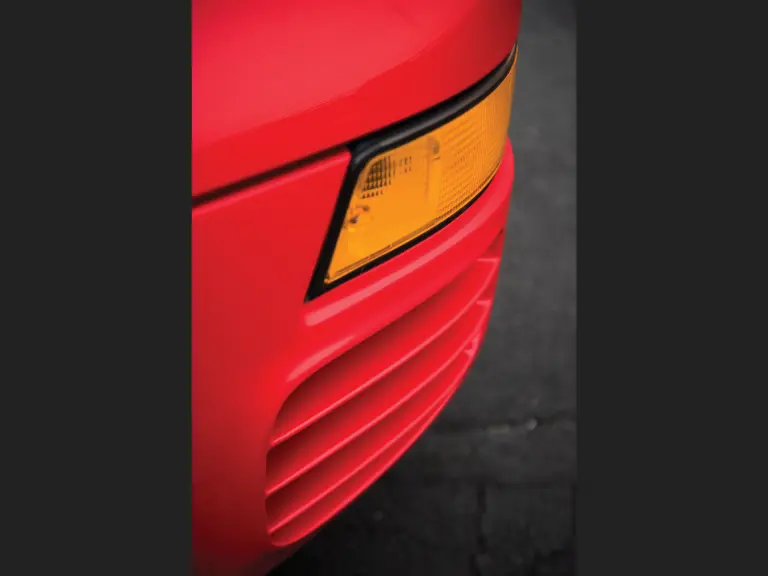

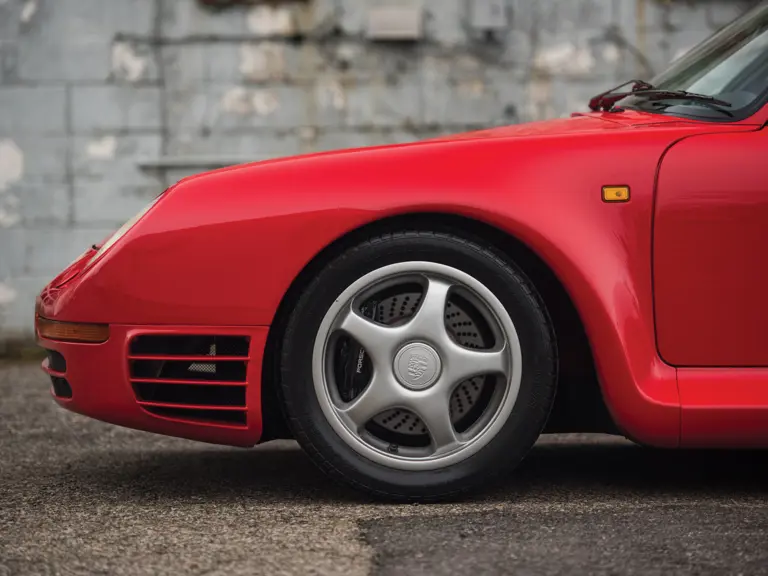
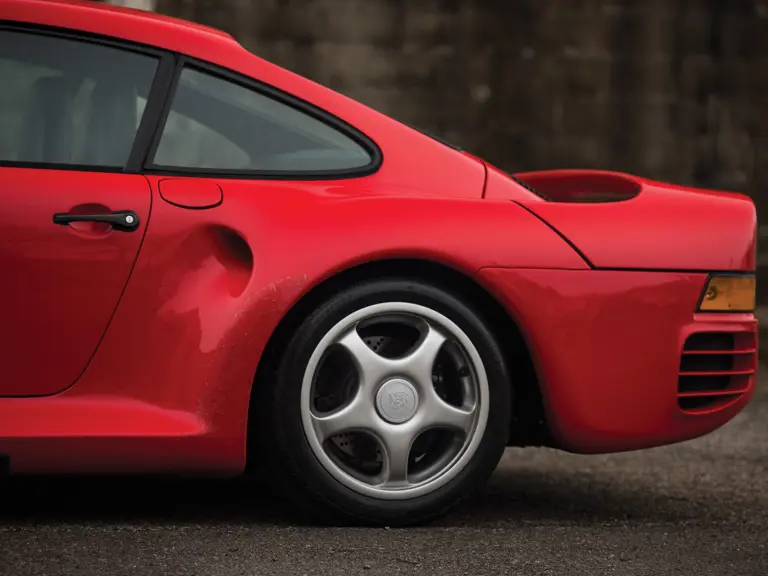
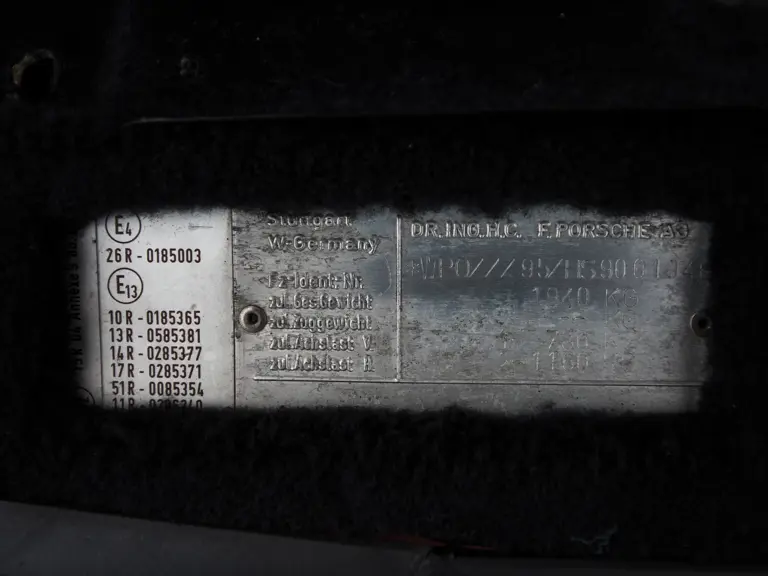
 | Phoenix, Arizona
| Phoenix, Arizona

